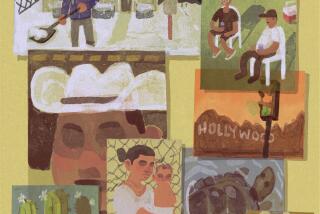‘All-American Muslim’ review: Varied lives shine through on TLC
The letters TLC, regarding the cable network of that name, originally stood for the Learning Channel but now seem to represent, or seem to want to be seen to represent, something closer to the old Tender Loving Care. The network has made something of a specialty of series that focus on unusual families — that is to say, different from the families of most of the people who watch TLC. Maybe there are more wives than usual; often there are many more children. Little people, big people: The message is that we’re all the same, but different, but the same. But different. (But mostly the same.)
The network does have something to answer for with “Toddlers & Tiaras” and that other show — “Enabling the Gosselins,” I think it was called — for which they will stand shoulder to shoulder with E! and Bravo when the last horn sounds. But there is something also to be said for the network’s nonjudgmental approach to its subjects. It is good to remember that not only can you not judge a book by its cover, you shouldn’t even judge the cover.
“All-American Muslim,” which premieres Sunday, is TLC’s newest exercise in modern anthropology. It is set in Dearborn, Mich., a Detroit suburb that boasts the nation’s largest concentration of Arab Americans, though even a brief cyber-tour of the city gives you a sense of a community more varied than the series at first suggests. That’s not to say your notions of life in a Muslim household, if you do not already come from one yourself, won’t be challenged or enlarged.
Though the show itself does not make it clear, it focuses on middle- to upper-middle-class Muslim families in the Lebanese community, the largest portion of Dearborn’s Arab American population, which also includes Palestinians, Yemenis and Iraqis. (And many of Dearborn’s Lebanese are, it is also not mentioned, Christian.) Yet even within this portion of the population, there is plenty of variation, and the show does explode the lazy notion that Muslim life is at all homogenous or unchanging.
There are, to be sure, events specific to the religion and the culture, as when a football coach schedules night practices to accommodate the daytime fasts of Ramadan, or a young woman, under clerical advice, begins wearing a hijab, the Muslim head scarf, in order to improve her chances of conception. There are moments of artificially heightened drama common to reality shows, but less of them than usual, and the lack of drama is actually part of the just-folks point. Indeed, in the first two episodes, the tensest moments all belong to Jeff, an Irish Catholic about to marry Shadia — who is tattooed, pierced, loves country music and doesn’t wear the hijab — and convert to please her father.
There are a lot of characters here, who chafe against or embrace their traditions to varying degrees, and it is a little hard to get a handle on everyone at first. But the general impression is one of a lot of nice people — most of them Dearborn born-and-bred, solid Midwesterners with Middle Eastern roots — trying to lead happy lives. Here are the Aoudes, who are expecting their first child:
“We’re due in a few weeks,” she tells the camera.
“Six, right?” says he.
“Well, let’s say four.”
“Why?”
“Because I want to have the baby at 38 weeks.”
“What do you do? You, like, send him an email or something?”
You could build a sitcom around them. As it is, they’re starring in a reality show. And what could be more American than that?
More to Read
The complete guide to home viewing
Get Screen Gab for everything about the TV shows and streaming movies everyone’s talking about.
You may occasionally receive promotional content from the Los Angeles Times.







